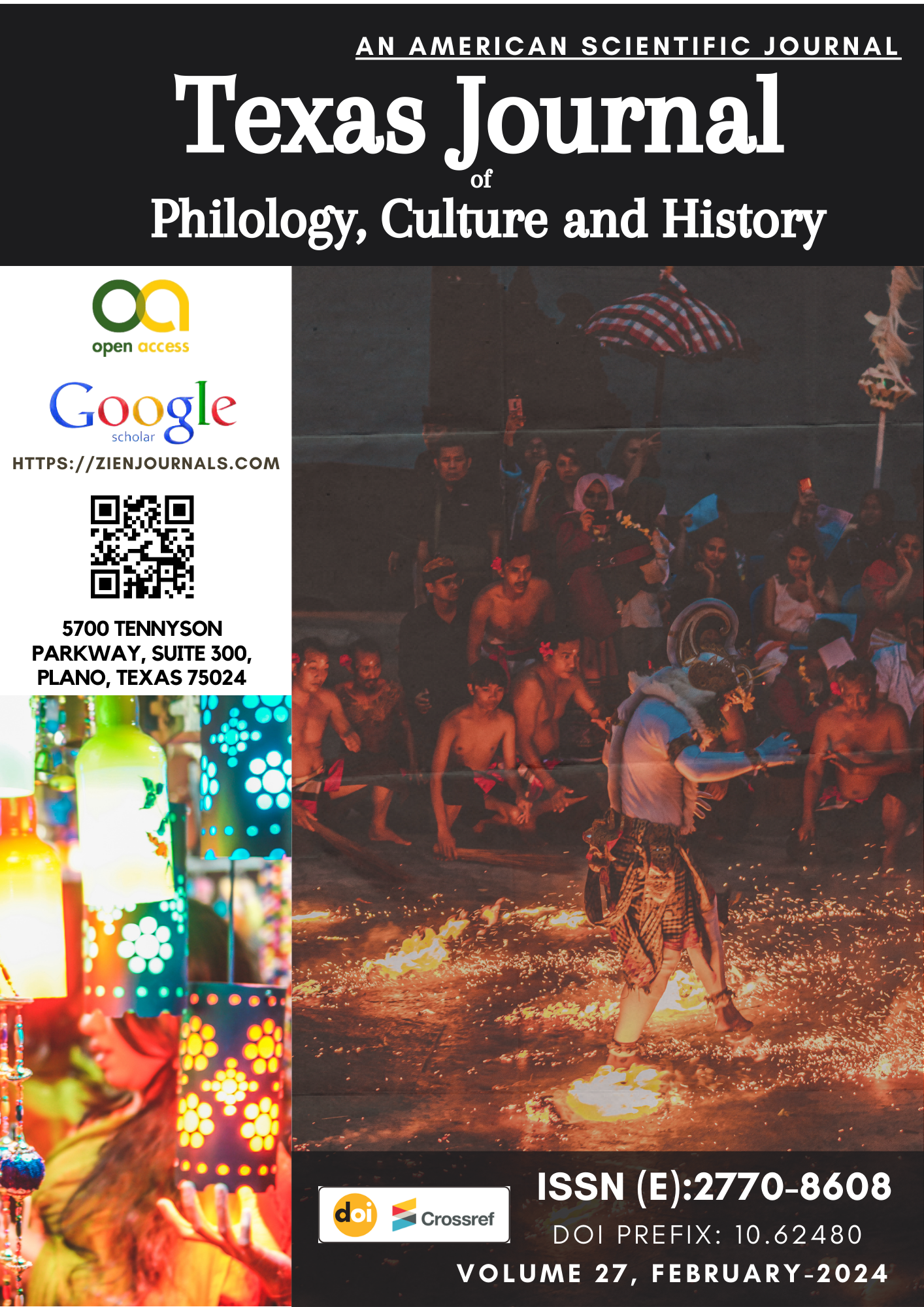The Etymology of Proverbs in the Life of Society as a Part of Folklore
DOI:
https://doi.org/10.62480/tjpch.2024.vol27.pp50-54Keywords:
folklore, religious texts, syntacticAbstract
Similar and different aspects of Uzbek and English proverbs. Their origin forms the basis of the article. With clear examples made easy to understand and theories proven. The etymology of proverbs, as a part of folklore, is a fascinating subject that delves into the origins and evolution of these traditional sayings within the fabric of society. Proverbs serve as concise, memorable expressions of wisdom and life truths, often reflecting the values, beliefs, and experiences of a particular culture or community. By examining the etymology of proverbs, scholars and enthusiasts can gain a deeper understanding of the intricate connections between language, culture, and society, while also appreciating the enduring relevance of these timeless expressions of human wisdom
References
Ahmedov U. Comparative Analysis Of Uzbek And English Proverbs. The American Journal of Social Science and Education Innovations. October 29, 2020.
A universal proverb definition. Scholars around the world continue to find their own English so-called "working definitions," of which some of the most recent attempts in the language are those by Shirley Arora, Nigel Barley, Otto Blehr, Margaret Bryant, David Cram, Alan Dundes, Galit Hasan-Rokem, George Milner, Peter Seitel, 2021
Coteus S. Touble never sets like rain. Proverb. – Oxford University Press, 2011
Mieder W. Proverbs - A Handbook. - Greenwood Press , 2004
Downloads
Published
Issue
Section
License

This work is licensed under a Creative Commons Attribution-NonCommercial 4.0 International License.
User Rights
Under the Creative Commons Attribution-NonCommercial 4.0 International (CC-BY-NC), the author (s) and users are free to share (copy, distribute and transmit the contribution).
Rights of Authors
Authors retain the following rights:
1. Copyright and other proprietary rights relating to the article, such as patent rights,
2. the right to use the substance of the article in future works, including lectures and books,
3. the right to reproduce the article for own purposes, provided the copies are not offered for sale,
4. the right to self-archive the article.













